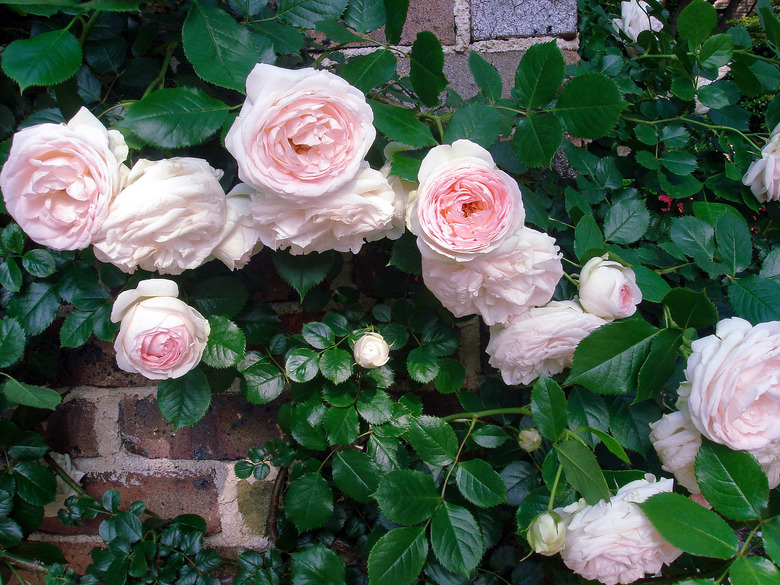How To Get Rid Of Aphids On Roses
Why You Shouldn't Use Ordinary "Soapy Water" to Kill Aphids
Insecticidal soaps are sometimes used to control certain pests on roses (Rosa spp.). These are relatively non-toxic natural soaps formulated for use on some plants.
Household detergents should never be used on plants, however. In some cases, it may be possible to reduce pest damage without resorting to chemical control at all.
Warning
Several common plants can be harmed by insecticidal soaps. While roses are not among that list, always read the label carefully of any product to ensure that it is designed for use on your particular plant.
What Are Insecticidal Soaps?
Insecticidal soaps are sold commercially in order to control pest infestations on a number of ornamental plants and crops, including roses. These soaps are less toxic than systemic insecticides and pesticides, do not leave a residue and are not harmful to wildlife or beneficial insects.
Insecticidal soap is effective against certain pests; it is not a blanket solution for any pest that might target a rose bush, so read the label carefully to make sure the product will work on the pest you have. Soap products work on many soft-bodied insects like aphids, soft scales, whiteflies, mealybugs, thrips and spider mites.
However, when using insecticidal soaps, it is nonetheless important to test the product on a small part of a leaf and wait a day to see if it causes any damage to the plant tissue.
Insecticidal soaps are mixed with water according to label instructions to create a soap solution. This solution must come into contact with pests in order to be effective.
Tip
Always test insecticidal soaps on a small part of the rose bush.
Why Household Detergents Can Harm Your Roses
While insecticidal soaps are formulated for use on plants, household dishwashing and clothing detergents and other cleaning products are not. Using these detergents on roses or any other plant is not recommended for several reasons.
Household detergents contain chemicals that may strip plant leaves of the waxy cuticle that protects the leaves from pathogens and also prevents water loss. Therefore, if you wash rose bush leaves with soapy water, they are more likely to dry out through transpiration.
Dish soap and other household cleaners may also harm beneficial insects such as pollinators and other organisms.
Tip
Dish soap and laundry detergent should not be used in the garden because they can cause injury to plant tissue and harm beneficial insects.
Solutions to Rose Pest Problems
Roses can become infested with a number of garden pests, including aphids, which are soft-bodied insects that suck plant sap from the undersides of leaves. Spider mites, which are tiny arachnids, also feed by extracting sap from leaves. Japanese beetles and winged insects known as thrips are also pests of rose bushes.
Aphids on Roses Treatments
While there are many species of aphids, the rose aphid is the species most commonly found on rose plants. One way to control aphid populations is to apply insecticidal soaps about once a week. Because of how quickly these insects lay eggs and multiply, controlling aphids on rose bushes rather than eliminating them is often the goal.
Tip
Insecticidal soaps should be applied often to new growth and must come in contact with insects in order to work.
Insecticidal soaps can also help rid rose leaves of sooty mold, which grows on a sweet substance called honeydew excreted by aphids.
It is also important to note that beneficial insects such as parasitic wasps, lacewings and ladybugs are natural enemies that prey on aphids, so using insecticidal soaps is preferable to harsher chemicals that can eliminate natural predators.
Insecticidal soaps can also be used to control thrips and spider mites.
Non-Chemical Pest Control
You can try to control an aphid infestation using non-chemical control methods, such as dislodging them with a stream of water from your garden hose.
Tip
Before reaching for insecticidal soap or some other product, consider non-chemical control methods first.
Japanese beetles are one of several types of beetle that feed on rose flowers and flower buds, and sometimes on rose leaves. One way to control these pests is to manually pick them off a plant and drop them into soapy water rather than applying any chemical control to the leaves.
